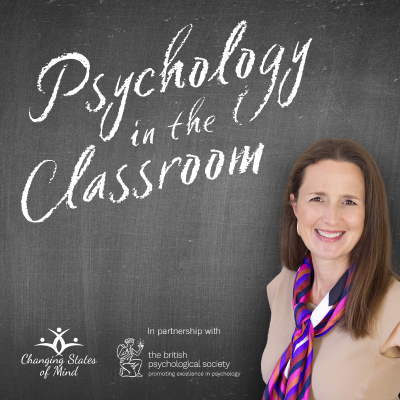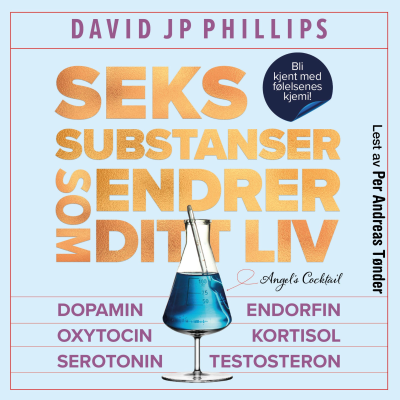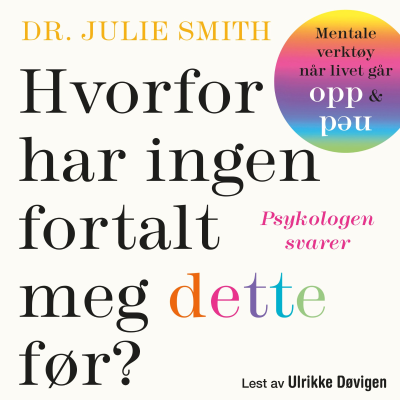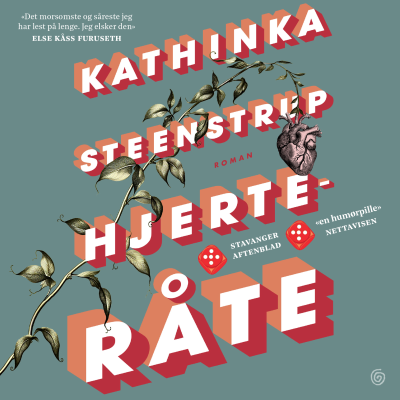
Psychology in the Classroom
engelsk
Teknologi og vitenskap
Prøv gratis i 14 dager
99 kr / Måned etter prøveperioden.Avslutt når som helst.
- 20 timer lydbøker i måneden
- Eksklusive podkaster
- Gratis podkaster
Les mer Psychology in the Classroom
The show that takes psychological research and translates it for classroom teachers so they can effectively apply it to their teaching practice to help improve outcomes for their students. Interviews with leading psychologists and other experts in the field of education, as well as deep dives into educational theory and a little bit of neuromyth busting.
Alle episoder
100 EpisoderMental Health Research: Practical Tips for Teachers and Practitioners to Navigate the Evidence
...with Andre Tomlin In this episode, Andre from The Mental Elf discusses how we can make mental health research accessible and useful for teachers and practitioners. The conversation tackles the challenges of jargon, paywalls, and misleading headlines, sharing practical tips for spotting reliable studies and avoiding common pitfalls. Andre highlights the power of co-producing interventions with young people, the importance of prevention, and the value of focusing on emotions and relationships in schools. *Trigger Warning* - the discussion is focussed on mental health and there is brief discussion of suicide. Links to the resources mentioned are below: * The Mental Elf: nationalelfservice.net/mental-health [http://nationalelfservice.net/mental-health] * André Tomlin - LinkedIn https://www.linkedin.com/in/andretomlin/ [https://www.linkedin.com/in/andretomlin/] * The ReSET Podcast Series https://resetproject.co.uk/the-reset-podcast/ [https://resetproject.co.uk/the-reset-podcast/] * Schools in Mind — free, evidence-based resources specifically for schools: https://www.annafreud.org/resources/schools-and-colleges/schools-in-mind/ [https://www.annafreud.org/resources/schools-and-colleges/schools-in-mind/] * Mentally Healthy Schools website — helps schools navigate what actually works https://www.mentallyhealthyschools.org.uk/ [https://www.mentallyhealthyschools.org.uk/] * Children and Young People's Mental Health Coalition https://cypmhc.org.uk/ [https://cypmhc.org.uk/] * Kiva Podcast with Julia Badger: https://changingstatesofmind.libsyn.com/unpacking-the-complexities-of-bullying-from-counter-connecting-to-whole-school-solutions [https://changingstatesofmind.libsyn.com/unpacking-the-complexities-of-bullying-from-counter-connecting-to-whole-school-solutions] * Kiva Podcast with Lucy Bowes: https://changingstatesofmind.libsyn.com/bullying-its-everybodys-problem [https://changingstatesofmind.libsyn.com/bullying-its-everybodys-problem] * More Mental Health podcasts from Psychology in the Classroom: https://changingstatesofmind.com/mental-health-%26-wellbeing [https://changingstatesofmind.com/mental-health-%26-wellbeing] Bullet point outline: * Challenges in making mental health research accessible to non-researchers, particularly educators and practitioners. * The gap between published research and its practical application in real-world settings. * Issues with paywalls, academic jargon, and the complexity of research language. * Importance of critically evaluating research headlines and studies, including understanding correlation versus causation. * Key factors for assessing research quality, such as peer review, study design, and effect size. * The role of mixed methods research in providing a comprehensive understanding of mental health interventions. * The significance of co-production with young people in developing effective mental health programs. * The distinction between efficacy and effectiveness trials in evaluating interventions. * Common myths about mental health research in schools and the importance of evidence-based prevention. * Resources and platforms that help bridge the gap between mental health research and practical application for educators.
The Power of Voice in the Classroom
...With Professor Silke Paulmann In this episode I am joined by Professor Silke Paulmann to discuss why how we sound matters just as much as what we say - the irony, as you will hear, being that my voice this week is far from fine! We often focus on the words we use to support student autonomy—offering choice and avoiding pressure—but Professor Paulmann's research reveals that our vocal tone is a primary carrier of psychological information. Whether you are teaching Early Years or Secondary, the way you modulate your voice can directly impact a student's sense of autonomy, competence, and relatedness. From reducing classroom anxiety to helping students feel truly "heard," your voice is one of the most powerful psychological tools in your teaching toolkit. Learn some easy to implement strategies to help your vocal tone. You can find out more here: https://www.tone4you.co.uk/ [https://www.tone4you.co.uk/] Key Moments: * Introduction to Professor Silke Paulmann: A look at her background in cognitive science and her research on voice as a biomarker. * The "Why" Behind the Voice: Why tone carries as much weight as our actual words in autonomy-supportive teaching. * Needs-Based Learning: How voice influences the three basic psychological needs: autonomy, competence, and relatedness. * Controlling vs. Supportive Voices: The difference between a "rushed" voice and a "grounded" voice. * Breathing Awareness: An exercise to find your breath and use it to reduce anxiety. * Tension Release: Using the "Sigh of Relief" and "Motorboat" sounds to loosen the vocal apparatus. * The Siren & Range: Stretching the voice to ensure it remains flexible rather than rigid. * Finding Your "Centered" Voice: A trick to stop speaking at an unnaturally high pitch. * The Practice Round: Lucinda tries out three different ways to say "Take your time" (Neutral, Pressuring, and Supportive). * Impact on Student Memory: Why slowing down doesn't just improve wellbeing, but also helps students remember more. * Closing Thoughts & Cool Down: A final breath exercise and a reminder that your voice is a psychological tool.
How Can We Combat Cyber Aggression in Schools Today
...With Protyasha Bhattacharyya Kicking off 2026 this episode dives into the latest research on cyber aggression and its effects on young people. We explore new findings about how different parenting styles can influence online behaviour, and why fostering psychological safety in schools is more crucial than ever. Listeners will discover practical, up-to-date strategies for teachers to help students navigate digital spaces safely and kindly. The episode concludes with a curated list of fresh resources for continued learning, setting a positive tone for the year ahead and empowering everyone to create kinder, safer online communities. * Background and qualifications of Protyasha Bhattacharya in psychology and criminology. * Definition and implications of cyber aggression, including its distinction from traditional bullying. * Impact of cyber aggression on young people's mental health, motivation, and academic performance. * Influence of parenting styles on adolescents' experiences with cyber aggression. * Overview of the four parenting styles and their potential relationship with cyber aggression. * Challenges in researching cyber aggression, including data collection and sample size limitations. * Demographic factors that may predict cyber aggression, such as educational attainment. * Recommendations for educators to address and reduce cyber aggression in schools. * Importance of ongoing research into cyber aggression, including cultural factors and digital environment influences. Resources: Childnet International: https://www.childnet.com/ [https://www.childnet.com/] UK Safer Internet Centre: https://saferinternet.org.uk/ [https://saferinternet.org.uk/] UK Department for Education - Preventing Bullying: https://www.gov.uk/government/publications/preventing-and-tackling-bullying [https://www.gov.uk/government/publications/preventing-and-tackling-bullying] DfE Online Safety Guidance: https://www.gov.uk/government/publications/teaching-online-safety-in-schools/teaching-online-safety-in-schools [https://www.gov.uk/government/publications/teaching-online-safety-in-schools/teaching-online-safety-in-schools] Journals: Computers in Human Behavior: https://www.sciencedirect.com/journal/computers-in-human-behavior [https://www.sciencedirect.com/journal/computers-in-human-behavior] Journal of Adolescent Health: https://www.jahonline.org/ [https://www.jahonline.org/] Cyberpsychology, Behavior, and Social Networking: https://journals.sagepub.com/home/cyba [https://journals.sagepub.com/home/cyba]
How Teacher Emotions and Motivation Shape Student Success
With Prof. Rebecca Lazarides In this motivational end-of-term episode, Professor Rebecca Lazarides (Professor for Empirical Research on Instruction and Schools at the University of Potsdam, Germany) discusses what keeps teachers motivated - even when energy is running low. Rebecca shares insights from her work on teacher motivation, explaining how self-reflection, supportive colleagues, and celebrating small wins can help teachers stay positive. The conversation explores practical strategies for managing emotions, the importance of authentic enthusiasm, and how school environments shape motivation. Listeners are encouraged to reflect on their successes and try new ideas, leaving them with a boost of encouragement as they head into a well-deserved break. The podcast in bullet points: * Teacher motivation and its impact on teaching quality. * The distinction between enthusiasm for the subject and enthusiasm for teaching. * The role of teacher emotions in classroom dynamics and student motivation. * External factors affecting teacher motivation, such as school environment and job demands. * Strategies for teachers to manage emotions and maintain motivation. * The importance of strong student-teacher relationships in fostering motivation. * Emotional regulation as a critical skill for teachers. * The influence of self-efficacy on teacher motivation and performance. * The significance of reflective practices in enhancing teacher motivation. * The situational nature of teacher motivation and its variability across different teaching contexts. The British Journal of Educational Psychology Special Edition is available on this link: https://bpspsychub.onlinelibrary.wiley.com/toc/20448279/2025/95/4 [https://bpspsychub.onlinelibrary.wiley.com/toc/20448279/2025/95/4]
Speaking Up: How to Cultivate Confident Communicators in the Classroom
...With Prof. Neil Mercer Neil Mercer is Emeritus Professor of Education at the University of Cambridge and a psychologist and in this episode we discuss the pivotal role of spoken language and oracy in education. We explored how classroom dialogue, reasoned discussion, and public speaking can be systematically taught to enhance students' thinking and communication skills. Neil shared insights on the impact of the pandemic on language development, practical strategies for fostering effective dialogue, and the importance of classroom culture and listening. We also discussed the value of public speaking for all students and highlighted resources for teachers to support spoken language development. The discussion in bullet points: * Importance of spoken language in education. * Development of children's language and thinking skills. * Role of reasoned discussion and dialogue in classrooms. * Influence of educational theorists like Vygotsky on language development. * Impact of the COVID-19 pandemic on children's language skills. * Practical strategies for teaching reasoned discussion. * Challenges teachers face in fostering effective dialogue. * Benefits of group work and whole-class discussions for student engagement. * The significance of classroom culture in promoting open discussion. * The necessity of public speaking skills in education and its role in democratic participation. Links: Find out more about Neil's work: https://oracycambridge.org/ [https://oracycambridge.org/] Blog: https://oracycambridge.org/blog/ [https://oracycambridge.org/blog/] Neil's Book - Oracy: The Transformative Power of Finding Your Voice https://www.penguin.co.uk/books/467731/oracy-by-mercer-neil/9781847928566 [https://www.penguin.co.uk/books/467731/oracy-by-mercer-neil/9781847928566] BPS Psychologist Article on Oracy 'Is it only words' https://www.bps.org.uk/psychologist/it-only-words [https://www.bps.org.uk/psychologist/it-only-words] I'll be sharing some older episodes that link to this about speech and language over the break so please do sign up to my newsletter: https://changingstatesofmind.com/contact-me [https://changingstatesofmind.com/contact-me]
Velg abonnementet ditt
Premium
20 timer lydbøker
Eksklusive podkaster
Gratis podkaster
Avslutt når som helst
Prøv gratis i 14 dager
Deretter 99 kr / måned
Premium Plus
100 timer lydbøker
Eksklusive podkaster
Gratis podkaster
Avslutt når som helst
Prøv gratis i 14 dager
Deretter 169 kr / måned
Prøv gratis i 14 dager. 99 kr / Måned etter prøveperioden. Avslutt når som helst.















































